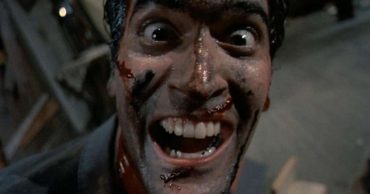
Realist film dialogue looks like a dysfunctional family really. Let’s be honest, the average conversation between family members can be anything from a series of barely understood grunts and signals that family members might understand to a rich and lengthy discussion that essentially goes nowhere. It’s not true of all families obviously but the act of talking over each other, instilling another person’s ideas with your own and attempting to gain superiority over each other is a common trait among human beings. Those that are truly open with one another and allow each other to express their ideas and thoughts might not always have this problem but it’s still a possibility and can occur without warning at times.
In the Meyerowitz Stories it’s shown to be a very realistic type of dialogue in which the family members do in fact speak over each other and express themselves in ways that are parallel to one another but are rarely complimentary. Dialogue is usually a way for characters to connect and to reach a type of understanding that allows them to bond in a way that is seen on film and in real life. It’s a sudden shift in the relationship between two people that can be noticed or ignored, but it puts two people on even ground with one another in terms of a conversation and their expectations of one another. That just doesn’t happen in this particular movie. Instead one son attempts to express himself in a way that speaks of his desire for approval, consolation, and acceptance, whereas his father is denying that approval while asking for his own consolation for his agenda.
This happens more than once and it happens with the two step-brothers in the movie as well, though to a lesser degree. Ben Stiller’s character is very adamant about what he does while Adam Sandler is attempting to assert himself over his half-brother by trying to finish his sentences with what he thinks he’s going to say, which is usually wrong. In a way Sandler is too much like their shared father in that he tries to talk over Stiller and impose his will by not allowing Stiller to really talk without his final bit of input. The dialogue at that point becomes uncomfortable as the two men seem a bit edgy and yet still keep talking. At the end of the exchange they finally reach an agreed upon middle ground that allows them both to bow out of the conversation with some grace.
So you can say this is what realistic film dialogue sounds like but in some ways it’s what realistic dialogue in the real world looks like as well. People tend to speak over each other when they believe that they have a greater point to prove than the next person. Their words are so much more important that they effectively deny the worth of another person’s words by speaking over them and about something that may or may not be related to subject at hand. It’s very rude and inconsiderate but it’s a common human trait that tends to allow people to simply push forward through a conversation that they are not particularly interested in. It can also make those they are speaking to somehow feel that their own issues or the topic of their conversation are worth much.
 Follow Us
Follow Us





